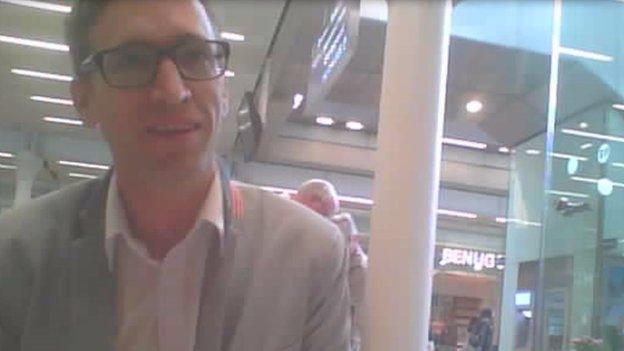London man 'training to cure autism' filmed abusing client
- Published
An undercover researcher who had a hidden camera posed as a man with autism
"Horrifying" practices have been exposed that purport to cure people with autism, during which clients are subjected to shouting and intimidation.
An undercover researcher posing as a man with autism was verbally abused and mimicked by a trainer for hours.
The BBC investigated after hearing of a Hungarian firm selling training to "cure" and treat autism in London.
Campaigners are calling on the government to regulate the industry further to protect people with autism.
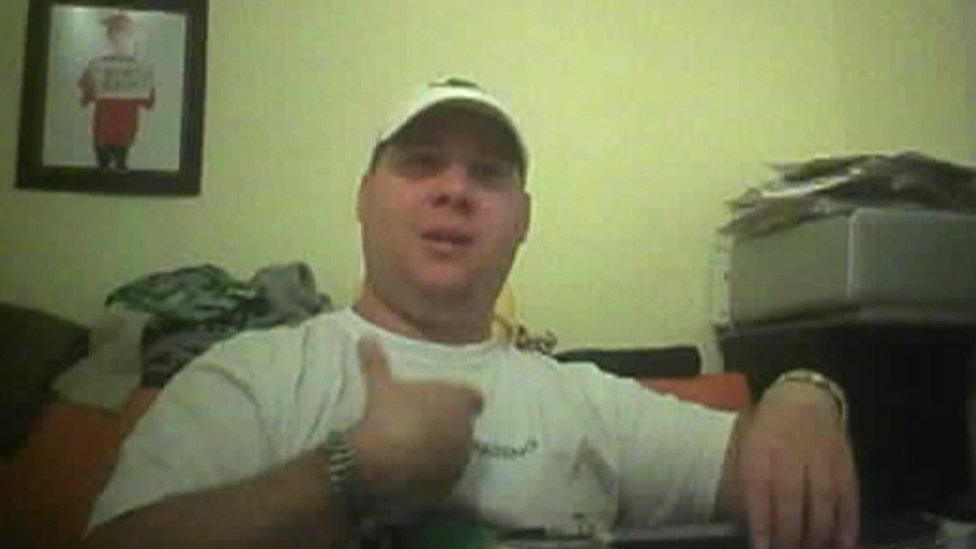
Stabil Pont Technologia's London trainer Jozsef Kanta claimed our researcher could be "cured" of autism with the help of mind training
Jozsef Kanta offered autism mind-training from premises in London, founded, he claimed, on methods developed by Stabil Pont Technologia, based near Budapest in Hungary.
Mr Kanta claimed the researcher's autism could be cured through a series of training sessions costing £3,500.
Mr Kanta said he was able to remove autism by locating the client's "inner trauma", but that could take 60 sessions or more.

What is autism?
Autism is a lifelong neurodevelopmental disorder. The condition affects the way people communicate with others and how they experience the world around them.
According to the National Autistic Society, external, more than one in 100 people are autistic and about 90,000 people in London are on the autism spectrum.
It is known as a spectrum disorder because it affects people in different ways. There is no known cure.

The researcher used the false name Jordan.
In the first of Jordan's sessions, he was ordered to make prolonged eye contact with Mr Kanta, something many autistic people struggle with.
Mr Kanta then began to taunt Jordan by telling him repeatedly his mother did not love him.
As the sessions went on the treatment became more confrontational with shouting.
Jordan said afterwards: "His hands were getting closer to my face, his body was getting closer to me, his face was getting closer to my face."
Mr Kanta was recorded as saying to him: "I'll go and slap you… you want I slap you?... or you want I punch you? Which one do you want?"
Richard Mills, research director at the Research Autism charity, analysed the BBC's footage.
He said: "It has no place under the heading of therapy of any kind."
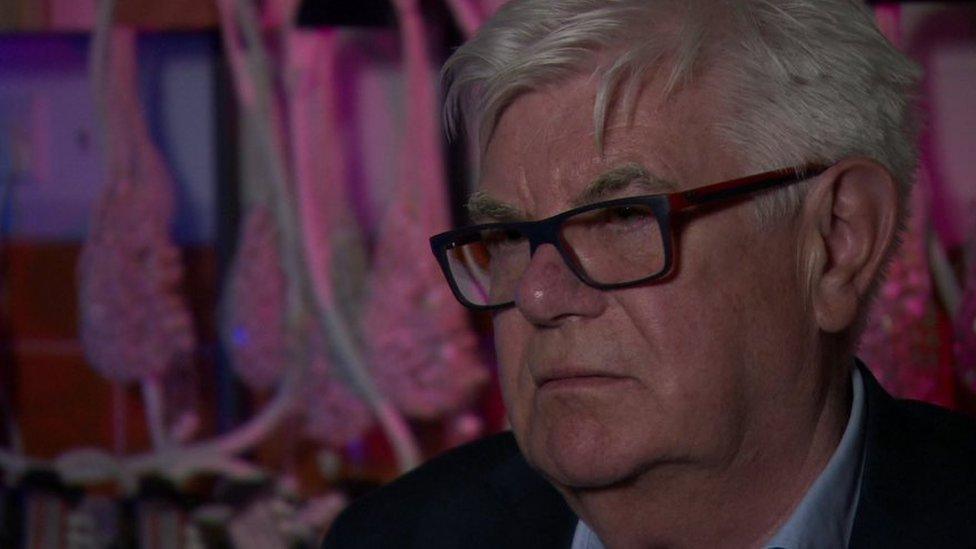
Richard Mills, research director at Research Autism charity, said he did not recognise Mr Kanta's treatment as a therapy
Mr Mills said people with autism were likely to find such interaction extremely stressful.
"To be confronted by someone who is so threatening is horrifying, it's terrifying.
"And to someone prone to stress and anxiety, the effects are likely to be catastrophic," he said.
The danger of unregulated treatment was the lack of safeguards, Mr Mills added.
Zoltan Toth of Stabil Pont Technologia claims to have pioneered the training system in Hungary.
When the BBC first approached Mr Toth, posing as a parent with an autistic child, he said: "I can kill autism, the first that did."
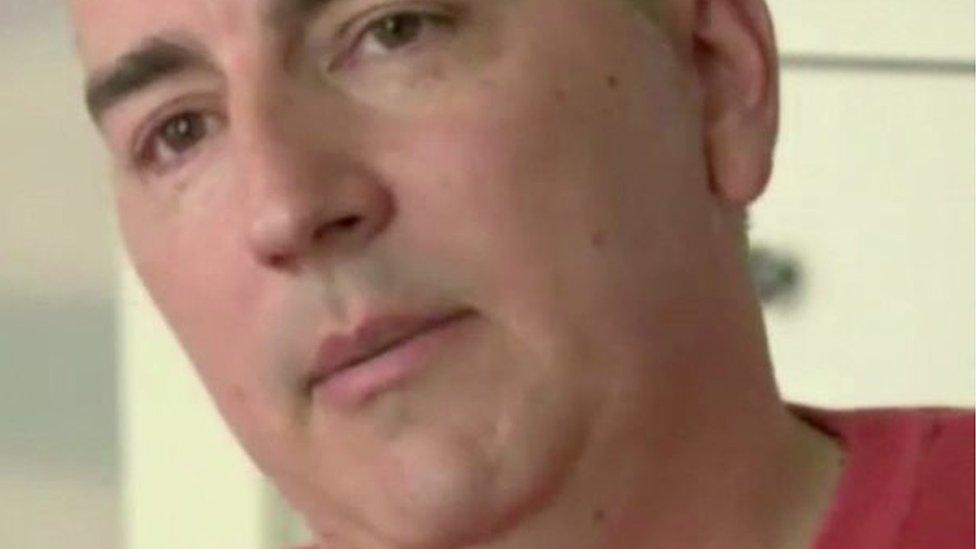
Zoltan Toth from Stabil Pont Technologia has appeared on Hungarian TV talking about the controversial technique
Mr Toth put the BBC in contact with Mr Kanta who he said was Stabil Pont Technologia's trainer in London.
Mr Kanta originally said he was in contact with other families with autism in the UK who were seeking treatment.
However, he later denied offering the training to anyone in the UK.
When the BBC approached Mr Kanta, he said the techniques used in Hungary, were "not a treatment or cure. It is training. We do not train or cure anybody."
He also said the firm had experienced "plenty of results" and the system was based on science.
When asked to explain the abuse shown in the BBC's recording, he said he had been playing "a joke".
When the BBC later approached Mr Toth for an explanation he said the technique "helps autistic people to become fully independent, normal people".
More than 51,000 people have signed a petition calling for the government to legislate against unproven treatments being marketed as autism cures.
Fiona O'Leary, of the campaign group Autistic Rights Together, who has autism herself, said: "Leading government bodies seem to have little appetite for tackling unregulated and abusive autism 'treatments'.
"Effective legislation is desperately needed to protect autistic people from an industry that allows them to be experimented on with bogus therapies."
The Department of Health said laws already existed in this area and people should report concerns to Trading Standards, external via Citizens Advice.
A spokesman told the BBC: "We are determined to help people with autism live full and independent lives and have set out a clear, cross-government programme of action, developed with people with autism, their families and carers, to help achieve this."
BBC Inside Out is broadcast on BBC One in the London region on Monday 26 September at 19:30 BST and nationwide on iPlayer for seven days following transmission.
- Published1 April 2016
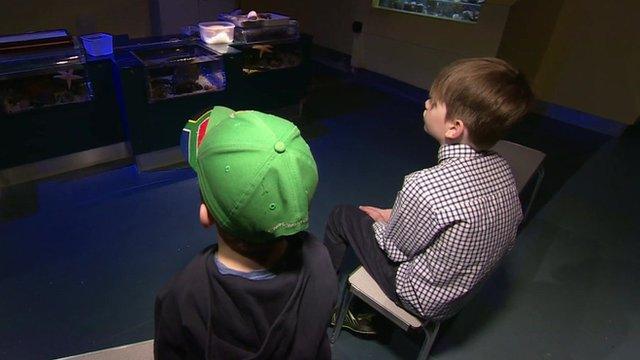
- Published22 March 2016
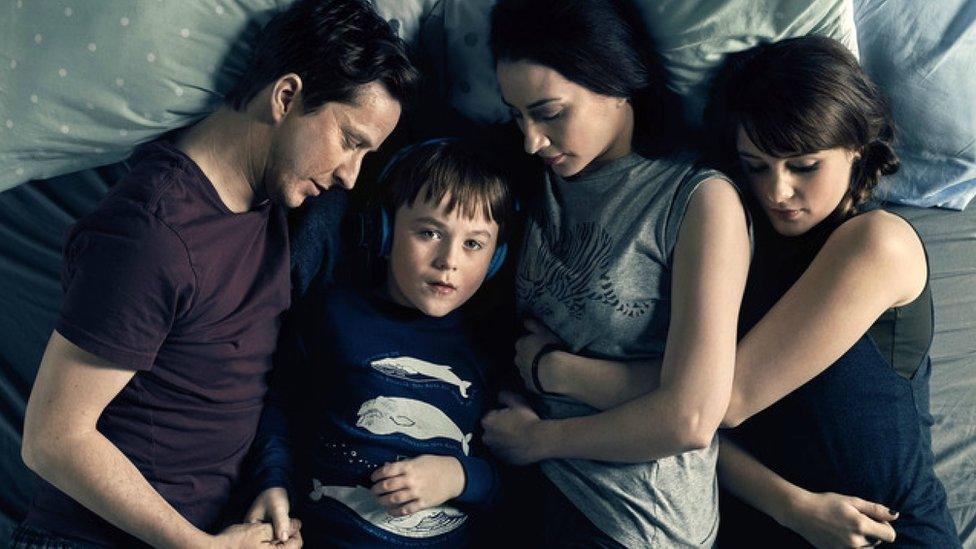
- Published18 March 2016
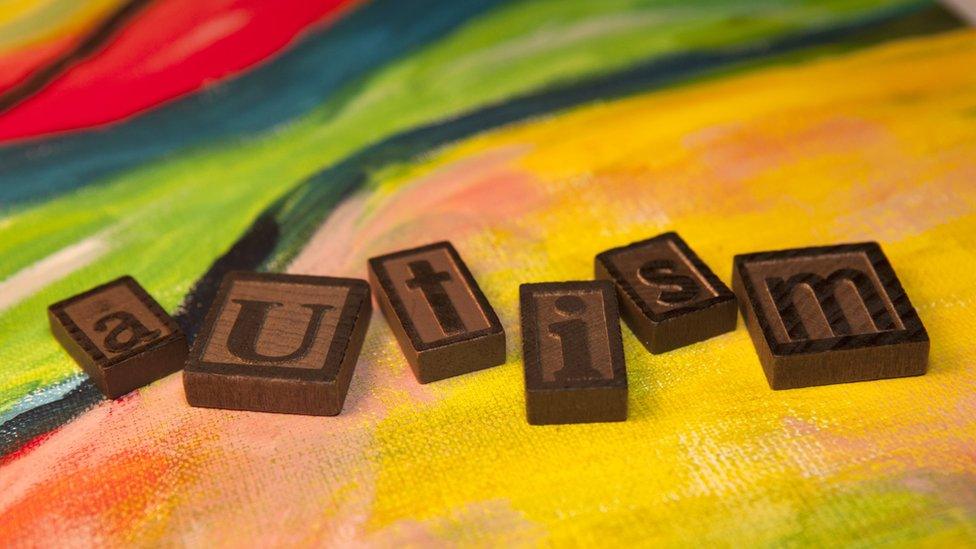
- Published11 June 2015
